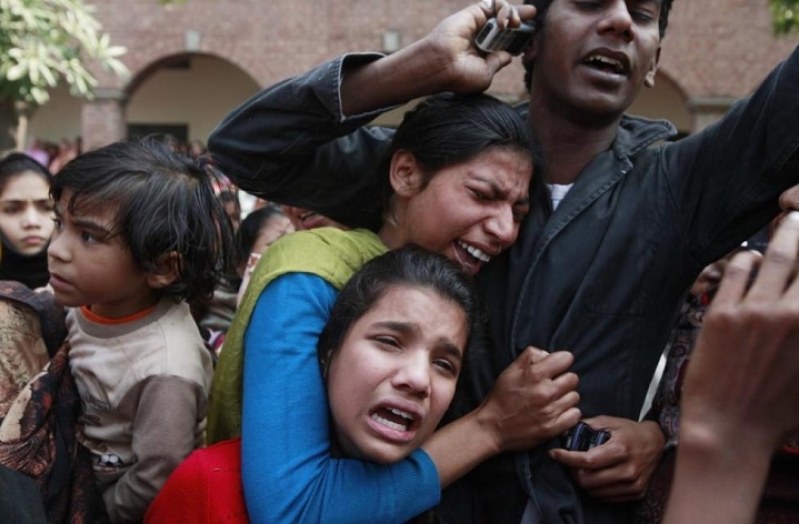
Intensified persecution of Christians is expected to happen in 2017, particularly in predominantly Islamic countries where Christian persecution from both the government and militants has risen, a new report said.
Release International, an organization that helps persecuted Christians globally, said increased persecution is likely to be experienced in the Middle East, Nigeria, Pakistan, Iran, China and India next year. The details are published in its annual Persecution Trends report.
In the Middle East, ISIS will continue its assault on Christians, particularly in war-torn Syria and Iraq, even as troops advancing against the terror group have gained ground. As a result, the conflict will keep fueling the refugee crisis in the region. The persecution watchdog said Kurdistan, where almost 2 million internally displaced people have settled, will be of particular concern.
Attacks against Christians in Nigeria are likewise alarmingly rising, and many of these have gone unreported, Release International said. While the military has advanced against Boko Haram, a group that pledged allegiance to ISIS, the threat of Fulani herdsmen persists.
According to the report, the Fulani militants typically attacked Christian communities at night, luring them out of their homes by firing shots in the air and then killing them and grabbing their land and properties. Such attacks are not stopped because authorities appear to tolerate them.
In Pakistan, blasphemy laws are being abused to persecute Christians, who are looked upon as “third class citizens.” A partner of Release International said the coming year will spell “more discrimination, forced conversions and forced marriages” for believers.
Attacks from militants are also more likely to occur, such as this year’s Easter bombing that claimed the lives of more than 70 people and injured hundreds. The bombing was claimed by Jamaat-ul-Ahrar, a splinter group from Taliban.
China will see an even more intensified crackdown against house churches, particularly with the 2016 draft of the Regulations on Religious Affairs, which were put in place “to hinder house churches and reduce contact with organizations outside of the government-controlled Chinese churches,” China Aid, a partner of Release International, said.
The Chinese government views Christians as threats, and many believers have been falsely accused of endangering state security and being involved in espionage activities.
Christian persecution in India will increase as well, particularly with the authorities being largely tolerant of Hindu extremists who attack Christians and other minorities.
According to Open Doors USA, the attitude of impunity for these extremists has worsened since the Bharatiya Janata Party, headed by Prime Minister Narendra Modi, gained government control in 2014.
On the first half of 2016, attacks against Christians reached 134, which was almost the total number of attacks for 2014 and 2015. More similar attacks are foreseen to happen next year.
“2017 looks set to be a harsh year for many Christians, under authoritarian regimes and at the hands of militants,” Paul Robinson, Chief Executive of Release International, said.
Robinson said the Persecution Trends report should serve as a “wake-up call” for Christians to give stronger support for persecuted believers.
“Our report on the likely trends of persecution in 2017 is a wake-up call to take our prayers and practical support for our persecuted family to a new level,” he said.






